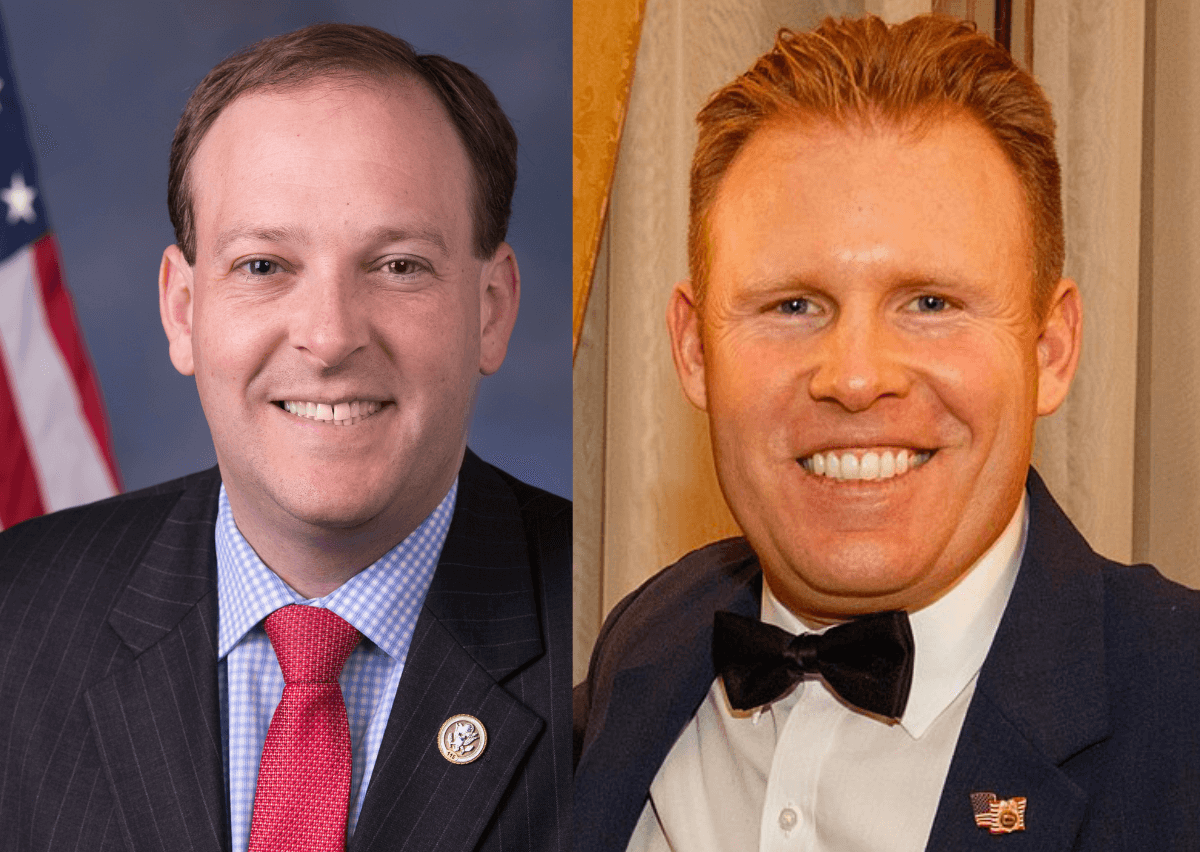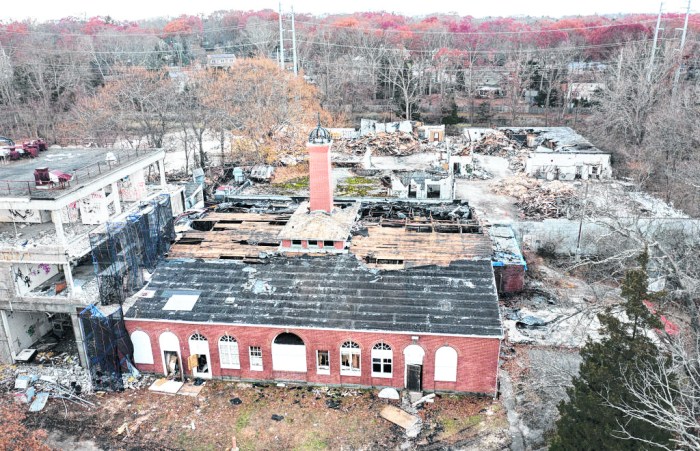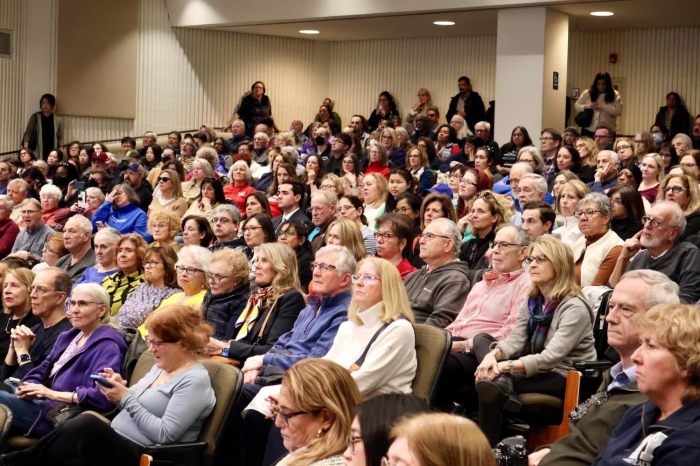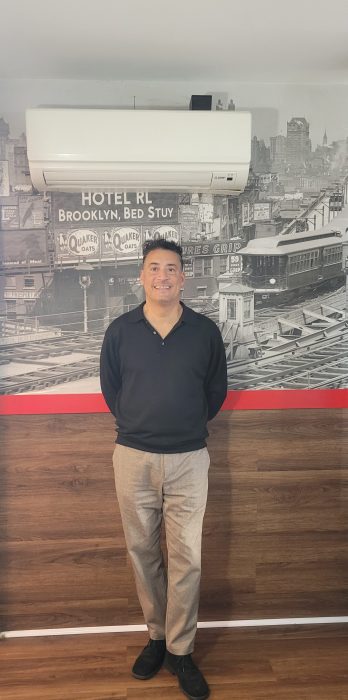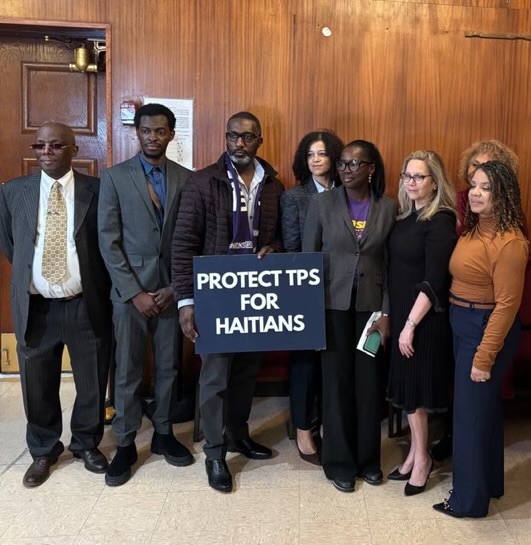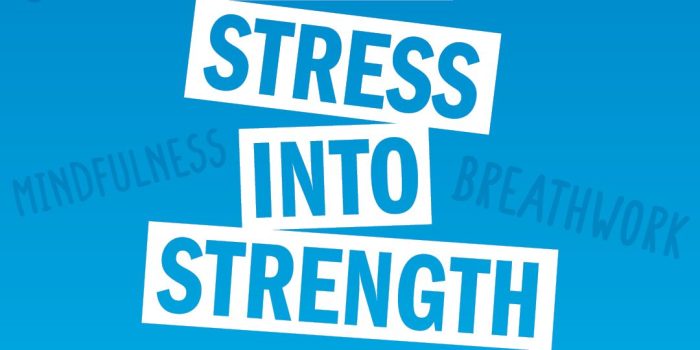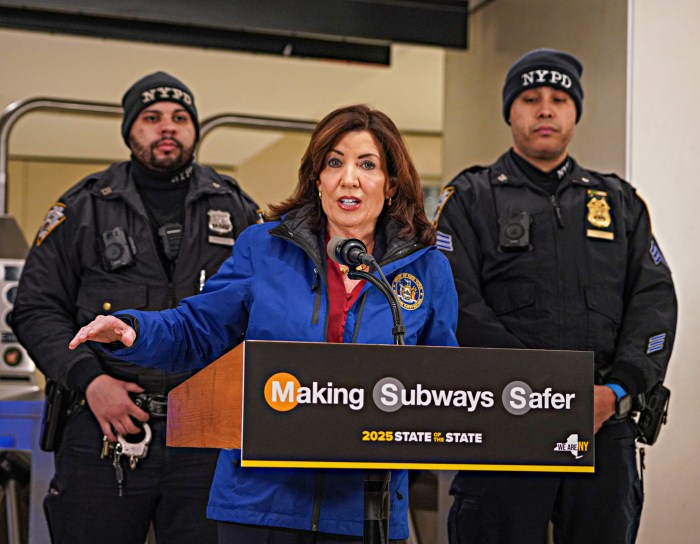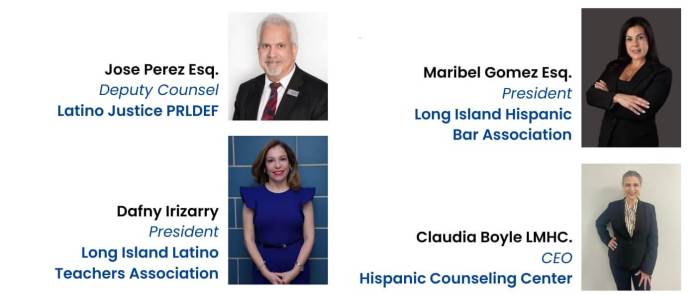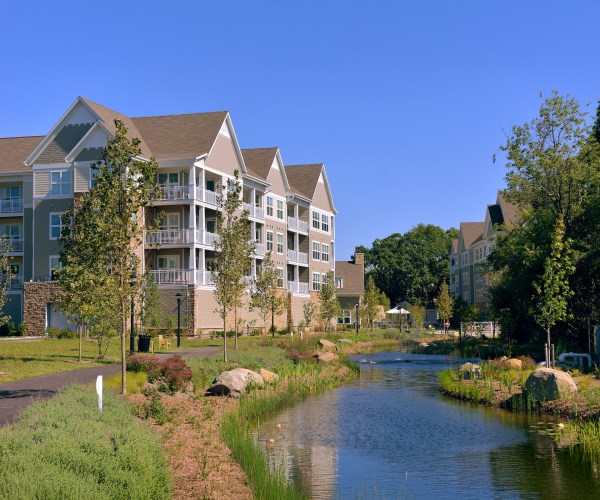By Ethan Stark-Miller
The fight for the Republican gubernatorial nomination has intensified in the final weeks of campaigning, as rival candidates U.S. Rep. Lee Zeldin (R-Shirley) and Andrew Giuliani held dueling press conferences Tuesday attacking progressive policies and officials.
Zeldin, who’s backed by both the state Republican and Conservative Parties, gathered with City Council Minority Leader Joe Borelli (R-Staten Island) and Council Member Joann Ariola (R-Queens) to lambast the policy known as congestion pricing on the outskirts of City Hall Park near the base of the Brooklyn Bridge.
While on the other side of the park, Giuliani gathered with his father – former Mayor Rudy Giuliani – and ex-mayoral candidate Curtis Sliwa to outline his plan for removing Manhattan District Attorney Alvin Bragg, who he described as “soft on crime.”
During his event, Zeldin railed against congestion pricing, a program that would charge vehicles that drive in Manhattan below 61st St, which was passed into law by the state legislature in 2019. The program is intended to dissuade people from driving into Manhattan, while encouraging them to use public transit as an alternative, to relieve traffic congestion and reduce carbon emissions.
The program is projected to bring in $1 billion a year in tolls, which will allow the MTA to unlock $15 billion in debt financing to fund its current five-year capital plan. While the tolls haven’t been set yet, they will affect most cars, trucks and vehicles in the Central Business District.
However, Zeldin said congestion pricing will impose an undue burden on working class New Yorkers from the outer-boroughs who rely on driving to get into Manhattan.
“I stand here totally opposed to this congestion pricing proposal that is on its way towards implementation right now in the state of New York,” Zeldin said. “I pledge as governor come January to do everything in my power to stop it.”
The program was established through the 2019 MTA Reform and Traffic Mobility Act and is no longer just a proposal. Although congestion pricing was passed well before Governor Kathy Hochul assumed office last summer, Zeldin said Hochul now “owns it, because she’s not doing anything to stop it,” and labeled the program a “Hochul Hike.”
Borelli said he chose the base of the Brooklyn Bridge for the event to point out that most of the cars coming over the crossing are moderately-priced rather than luxury vehicles, to make a point about the socioeconomic status of who congestion pricing would impact most.
“I want you to look behind me at the cars coming off of the Brooklyn Bridge,” Borelli said. “And I want you to find me the Rolls-Royces, I want you to find me the Maseratis and I want you to find me the Range Rovers that so many of my Manhattan friends think cross this bridge every day to go to work, to go to the hospital, to visit family, etc. The truth is that this is a tax on the middle class and the working poor. Again, the cars coming over that bridge, you’re gonna see old beat-up Ford minivans, you’re gonna see Hondas, you’re gonna see Nissans. You’re gonna see the cars that transport average Americans, average New Yorkers to their place of work or where they need to go in Manhattan.”
However, according to a recent Siena College poll the majority of New Yorkers – 52 percent – say they don’t own a car. And the majority of those who do – 52 percent – make between $50,000 and $100,000 a year, while only 26 percent of those who make below $50,000 a year own one.
According to Zeldin, people are fleeing the city in droves because it’s become too expensive and too unsafe for many to live comfortably. Implementing congestion pricing, he said, will only make it harder to survive in the city and drive more people to move elsewhere.
“People are struggling to make ends meet,” Zeldin said. “They’re better affording life by heading to other states elsewhere. They feel like their money will go further in the Carolinas or Florida or Tennessee or Texas. This isn’t going to make it any easier to survive in New York.”
The best way to fund the litany of repairs and upgrades the MTA has to make throughout its subways, commuter rails and bus system, Zeldin said, is to push the agency to function more efficiently rather than implementing congestion pricing.
“We should be having a conversation on how to make the MTA operate more efficiently for New Yorkers,” Zeldin said. “Rather than just trying to figure out, where’s the next new pot of money [going] to come from.”
In a statement to PoliticsNY, Zeldin said he’s had many ideas for how to make the MTA more cost-effective and efficient in the past, including eliminating its payroll tax, scaling back the salaries of top agency officials and reducing its number of supervisors and managers.
“The main focus should be finding better ways for the MTA to efficiently use its budget, increase trust among customers, and improve safety on all of their buses and trains,” Zeldin said. “I have a long record of being able to identify many ways for the MTA to operate more efficiently.”
This story first appeared on PoliticsNY.com.
Sign up for Long Island Press’ email newsletters here. Sign up for home delivery of Long Island Press here. Sign up for discounts by becoming a Long Island Press community partner here.




